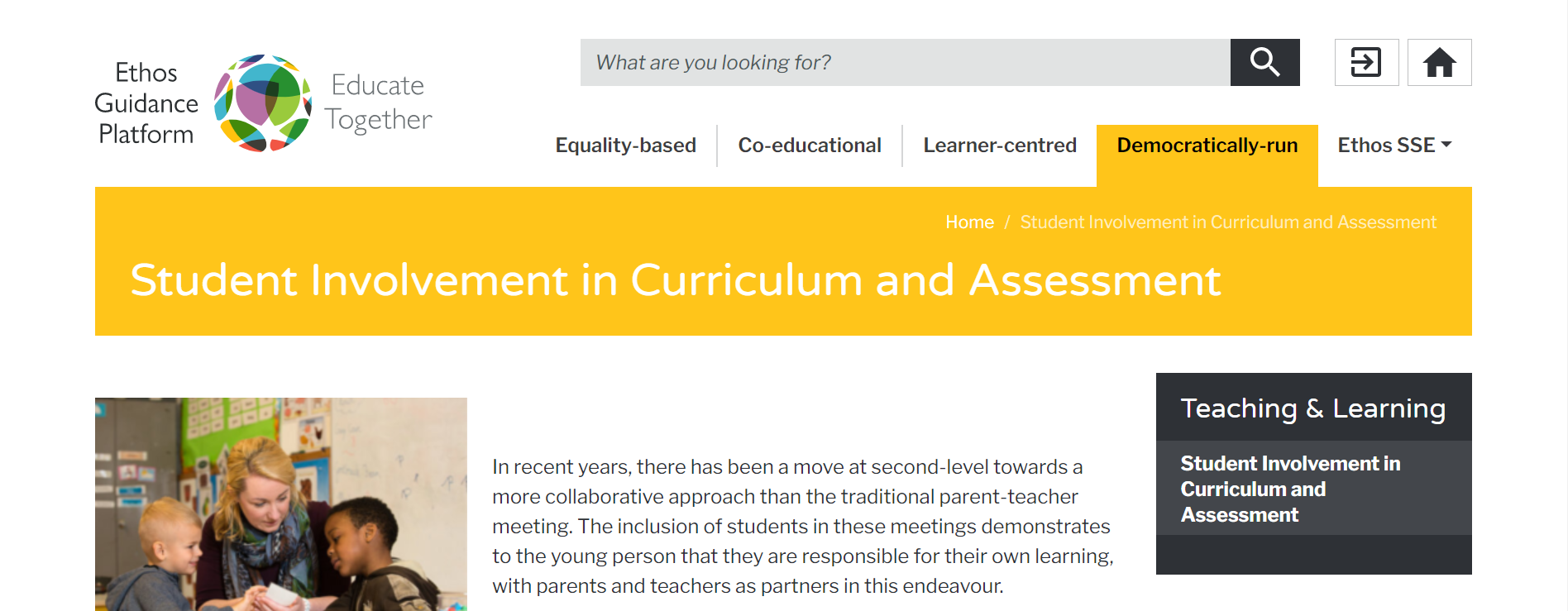Educate Together’s Ethos Guidance Platform is an online resource for Educate Together schools to support the implementation of Educate Together’s unique equality-based ethos. Access guidance on a range of topics and explore how schools across the network espouse best practice by registering for an account using your email and your school roll number.
Each edition of the Ethical Education Matters newsletter will examine a particular topic from the platform. As we approach the end of the school year for many of our schools, this issue explores Student Involvement in Curriculum and Assessment.

Primary
For reasons of time and management, at primary level (particularly in the younger classes), it is generally more appropriate for parent-teacher meetings to take place without the child present. The compilation of a portfolio, however, can provide a mechanism by which children can begin to be involved in their own assessment and reporting. The traditional practice of students looking to teachers for validation and affirmation moves towards self-assessment and guided reflection. Students compile a portfolio of their work throughout the year (see Assessment Guidelines for Primary Schools, particularly pages 30-33). They choose the work they would like to feature in the portfolio. This is then presented in a child-led parent-child meeting, the child showing their work to their parent and explaining their reasons for selecting some of the pieces. The teacher may be present for some or all of the meeting.
Second-level schools
Schools hold student-teacher-parent meetings involving students in discussion about their progress.
- Students are involved in making decisions about what and how they learn and how their learning is assessed.
- Students participate in/feed into curricular planning meetings.
- Students co-create new school designs such as logos, posters and featured artwork.
- Students participate in teacher/student and student/student working groups on school improvement.
- Students contribute to the appointment process for positions in the school.
Read more about Educate Together’s Guidance on Student Involvement in Curriculum and Assessment here!
